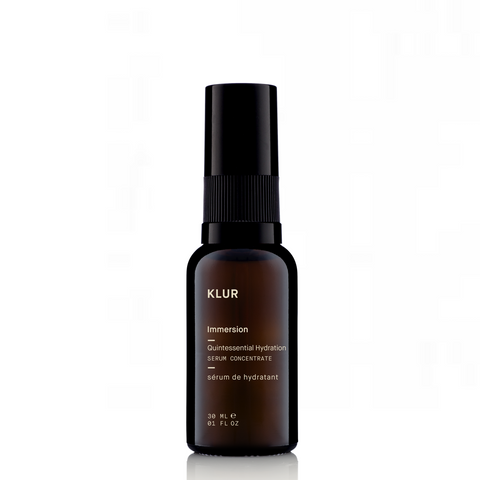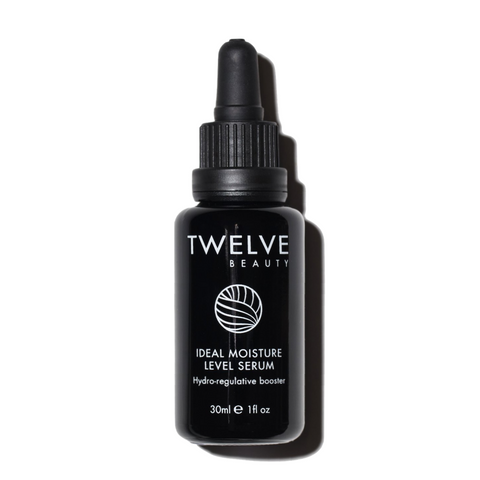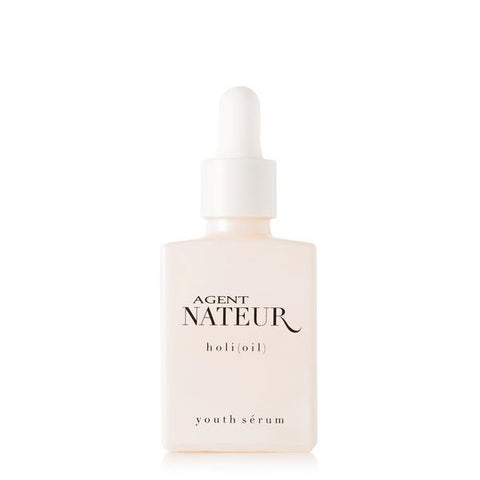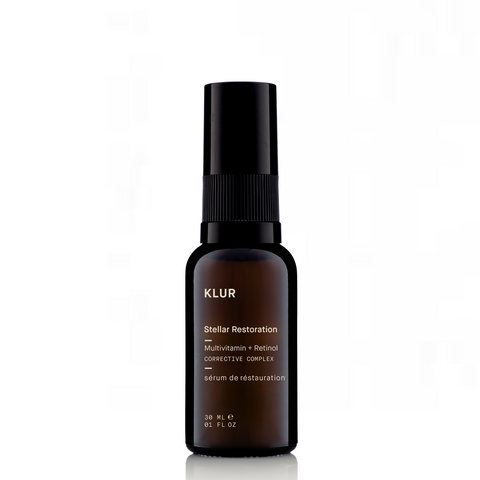Free shipping for HK orders HK$600+
Debunking 5 Common Skincare Myths
August 05, 2020
It's true that you can find a lot of valuable skincare information online, however, there are also a lot of myths and misconceptions floating around every corner of the internet that even seasoned beauty editors are unaware of. It's time to debunk these myths so that everyone can make better informed decisions when it comes to caring for their skin. Here are 5 skincare myths you need to stop believing:
Myth ① Acids & Enzymes Thin Your Skin
The upper layer of the skin, the stratum corneum, is made up of old, dead skin cells. The thicker it gets, the tougher and dryer the skin feels, the duller it appears, and the harder it is for products and their active ingredients to penetrate the skin. Acids and enzymes work by dissolving the bond between these dead, unwanted skin cells so they can be shred off much easier and quicker.
At the same time, these acids actually help thicken the dermis, because with time, they increase the amount of collagen deposition and synthesis, as well as hyaluronic acid production within the dermis, so the skin will appear more plumped, smooth and bouncy.
So sloughing of unwanted dead skin cells should not be confused with thinning the skin. In fact, acids can be used up to 3 times a week depending on the formula, and enzymes can be used everyday, with no irritations.
Product Recommendation
Agent Nateur
holi(bright) Resurface Glass Face Mask <- Click to shop
Product Recommendation
AGENT NATEUR
acid(wash) Lactic Acid Brightening Cleanser <- Click to shop
____________________________________
Myth ② Pores Can Be Opened & Closed
Our pore size is genetically determined, thus its size cannot be physically changed. In addition, because pores are not muscles, they simply do not open or close. Period.
Steam can help loosen the oil, wax and dirt inside pores, making them easier to be cleansed away, but won’t actually open the pores like a door. Same goes with cold water. It can temporarily cause the skin to tighten, like goosebumps during winter, but it won’t affect your actual pore size whatsoever.
What you can do is exfoliate regularly with AHA, PHA and enzymes, and unclog pores with BHA and clay. Without dirt, sebum and dead skin cells clogging and enlarging them, the pores will easily appear smaller.
Then use products that can effectively encourage skin cell turnover and stimulate collagen production, such as retinol, niacinamide and peptides, to help support the collagen around the pores, so they will stay tight, thereby preventing them appear large and dragged down into an oval shape.
Product Recommendation
EATH LIBRARY
The Pure Wonder Active Serum <- Click to shop

Product Recommendation
KLUR
Immersion Serum Concentrate <- Click to shop
____________________________________
Myth ③ Drinking Water Can Boost Skin Hydration
While drinking water is definitely important for overall health, there is a lack of research actually proving drinking water impacts skin hydration. Obviously if you are continuously dehydrated, it will eventually take a toll on your skin, but the truth is, when you drink water, it first gets absorbed into the bloodstream, then filtered by the kidneys, and finally hydrates cells and helps nutrients reach different parts of our body through our blood flow——the water itself doesn't automatically get directed to the skin.
Therefore, in order to boost skin hydration, it is better to focus on topical hydration. Start by using a hydrating toner and serum consisting of a range of humectants, then lock that hydration in with emollients (say an oil or balm), and if you're really dry, some occlusives as well (for detailed explanation of the the differences, read <How To Properly Layer Skincare Products>.

Product Recommendation
TWELVE BEAUTY
Ideal Moisture Level Serum <- Click to shop

Product Recommendation
MARIE REYNOLDS LONDON
Reson8™ <- Click to shop
____________________________________
Myth ④ Only Dry Skin Needs A Face Oil
The outermost layer of the skin is made up of ceramide, cholesterol and saturated fatty acids. It exists to keep bacteria out and hydration in. However, the levels of these lipids decline with age, as a result, the skin is more prone to dryness, dullness and conditions such as eczema and psoriasis, whilst fine lines and wrinkles become more prominent. The constant air-conditioning and hot air can also dry your skin out, causing it to produce more oil to compensate, leading to extra oiliness.
By adding in an oil and replenish the lost lipids, whether your skin is dry, normal, sensitive, or oily, not only will the skin feel hydrated, it will also be able to fortify itself, retain optimal moisture, and maintain a healthier, stronger barrier to effectively improve skin issues such as dryness, eczema, irritations, oiliness and wrinkles.
Besides essential fatty acids, since oils are lipophilic, they can penetrate deep into the skin and nourish the cells with all the nutrients, including vitamins, minerals, tannins, beta-carotenes, anthocyanidins, antioxidants, flavonoids, tocotrienols, phenolic compounds, proteins, as well as anti-inflammatory, antibacterial, and antimicrobial properties, that are vital for skin health.
So, no matter what your skin type is, consider adding a face oil daily, even if it's only at night, to bring back that healthy glow to your skin.

Product Recommendation
AGENT NATEUR
holi(oil) Ageless Face Serum <- Click to shop
Product Recommendation
KLUR
Unseasonal Kind Lipid Replenishment Oil <- Click to shop
____________________________________
Myth ⑤ Bakuchiol Is Better Than Retinol
Recently there has been a lot of buzz around how Bakuchiol, derived from the Babchi plant, is a "natural retinol" as it gives similar anti-aging results as retinol. The truth is, they are totally different, and there has only been a few studies on Bakuchiol.
Retinol is a precursor of Retinoic Acid, is a fat-soluble Vitamin A, that is slowly transformed into Retinoic Acid in the skin. It then works through specific receptors in the cell that trigger an increased production of collagen Type I, III and IV as well as elastin fibres. It also speeds up cell turnover. All these increases the skin's firmness and elasticity, smoothes out wrinkles and fine lines, evens skin tone, reduces hyperpigmentation, while minimizing the appearance of pores and treating acne. It is arguably the most important skin care ingredient.
Bakuchiol, on the other hand, is a botanical with meroterpene phenol as a major component that has anti-inflammatory, antioxidant and antibacterial benefits. It bears no structural resemblance with Retinoic Acid, and cannot fit into the Retinoic Acid receptor to trigger the same response in the skin.
The earliest studies on tretinoin (the active form of retinol) date back to the 1970s with hundreds of high quality clinical trials proven its benefits, whilst, there has only been a handful of studies on Bakuchiol, mostly in vitro, since 2014.
So while Bakuchiol is seemingly a good skincare ingredient, in terms of robust evidence for effectiveness, it’s nowhere near retinoids, thus calling it a natural Retinol is far-fetched. In short, you shouldn’t replace your retinol product with it, unless you're pregnant.

Product Recommendation
KLUR
Stellar Restoration Corrective Complex <- Click to shop
Product Recommendation
KLUR
Sculpture + A Overnight Enrichment Cream <- Click to shop
Also in The Journal

The Hidden Culprits of Skin Aging: Autophagy Decline and Zombie Cells
January 07, 2026
Don't just mask aging—reverse it. Learn how clearing Senescent Cells and restarting Autophagy creates lasting youthful skin.

The Anti-Aging Gold Standard: How Retinol Reshapes The Skin
November 12, 2025
Learn why retinol is the gold standard for anti-aging, how it works, what similar ingredients exist, and some common myths and misconceptions.

The Gut-Skin Connection: The Path to Healthy Skin
October 26, 2025
Acne, eczema, rosacea, and sensitivity can all be linked to the gut health, and even gluten? Learn all about the connection between the gut and the skin.
+Recent Articles
-
The Hidden Culprits of Skin Aging: Autophagy Decline and Zombie Cells
January 07, 2026
-
The Anti-Aging Gold Standard: How Retinol Reshapes The Skin
November 12, 2025
-
The Gut-Skin Connection: The Path to Healthy Skin
October 26, 2025
-
The Secret to Reversing Skin Aging! How Growth Factors & Peptides Help Turn Back the Clock
October 13, 2025
-
The Best Ways and Times to Take Different Supplements
August 19, 2025
-
Luxury vs. Budget-Friendly Skincare Products——What Are Their Differences?
August 06, 2025
-
How to Prevent and Improve Post-Inflammatory Hyperpigmentation (PIH)
July 10, 2025
-
How to Prevent and Improve Post-Inflammatory Erythema (PIE)
July 08, 2025
-
The Ultimate Cleansing Guide to Improve Skin Conditions
June 03, 2025
-
Do You Have Sugar Face? How Does Sugar Affect Our Skin and Appearance?
May 20, 2025
Subscribe to get skincare knowledge delivered to your inbox!








